This article delves into the intricate relationship between hydration and fasting, addressing common questions and misconceptions about drinking water during fasting periods. Understanding the science behind hydration and its effects on fasting can empower individuals to make informed choices.
Understanding Fasting: Types and Benefits
Fasting can take various forms, each with its unique benefits. The most common types include:
- Intermittent Fasting: Involves cycling between eating and fasting periods.
- Prolonged Fasting: Extends beyond 24 hours, often for detoxification or spiritual reasons.
Understanding these types helps clarify how hydration fits into each method and the potential benefits associated with them.
The Role of Water in the Human Body
Water is essential for nearly every bodily function, including:
- Regulating body temperature
- Aiding in digestion
- Transporting nutrients
These functions highlight why maintaining hydration is crucial, even during fasting periods.
Can You Drink Water While Fasting?
Many people wonder if drinking water breaks a fast. Generally, water consumption is viewed as acceptable during fasting periods, as it does not contain calories and does not trigger metabolic responses associated with eating.
Intermittent Fasting and Water Intake
During intermittent fasting, water can be consumed freely. In fact, staying hydrated can enhance overall health and support the fasting process without disrupting the metabolic state.
Prolonged Fasting and Hydration
In prolonged fasting, the absence of food extends beyond 24 hours. Here, water intake becomes even more critical to prevent dehydration and maintain bodily functions. Electrolyte-rich water can also be beneficial during extended periods without food.
Hydration and Metabolism During Fasting
Hydration plays a significant role in metabolism. Adequate water intake can influence metabolic rates and energy levels, making it essential to drink enough water during fasting.
Common Myths About Water and Fasting
Several myths surround the topic of water consumption during fasting:
- Myth 1: Drinking water breaks a fast. Truth: Water does not contain calories and does not break a fast.
- Myth 2: All liquids are equal. Truth: Water is the best option; beverages like coffee and tea can have different effects.
Electrolyte Balance During Fasting
Maintaining electrolyte balance is crucial during fasting. Hydration, along with electrolyte intake, can prevent dehydration and support overall health. Consider adding a pinch of salt or electrolyte supplements to your water if fasting for extended periods.
Signs of Dehydration While Fasting
Recognizing the signs of dehydration is vital for anyone fasting. Symptoms include:
- Dry mouth
- Fatigue
- Dizziness
Addressing hydration needs promptly is essential to ensure a safe fasting experience.
Best Practices for Staying Hydrated While Fasting
To maximize the benefits of fasting, staying hydrated is key. Here are some practical tips:
- Drink at least 8-10 glasses of water daily.
- Incorporate electrolyte-rich beverages if fasting for long durations.
- Listen to your body; drink when you feel thirsty.
Conclusion: Hydration and Fasting—A Balanced Approach
In summary, understanding the relationship between hydration and fasting is crucial for anyone looking to optimize their fasting experience. By staying informed and hydrated, you can enhance your fasting journey.
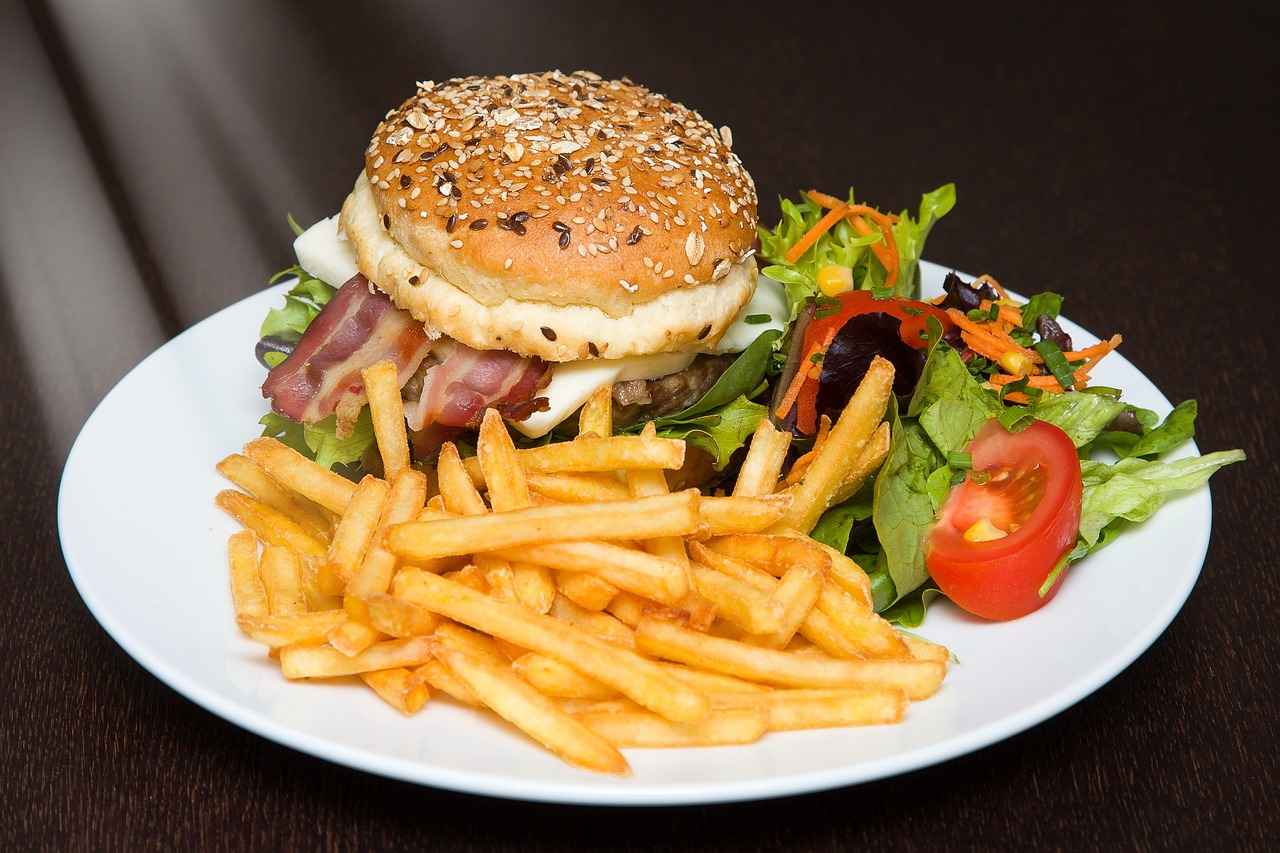
Understanding Fasting: Types and Benefits
Fasting has gained popularity as a health and wellness strategy, with many people exploring its various forms and benefits. Understanding the different types of fasting is essential for anyone considering this approach, as it allows for a clearer perspective on how hydration plays a role in each method. This section delves into the two primary types of fasting: intermittent fasting and prolonged fasting, and highlights the potential benefits associated with each.
Intermittent Fasting is a dietary pattern that alternates between periods of eating and fasting. Common methods include the 16/8 method, where individuals fast for 16 hours and eat during an 8-hour window, and the 5:2 diet, where normal eating occurs for five days, and calorie restriction is practiced for two days. The benefits of intermittent fasting can be significant, including:
- Weight Loss: By reducing the eating window, many find it easier to consume fewer calories, leading to weight loss.
- Improved Metabolic Health: Intermittent fasting can enhance insulin sensitivity and lower blood sugar levels.
- Cellular Repair: Fasting triggers autophagy, a process that helps the body remove damaged cells and regenerate new ones.
During intermittent fasting, hydration remains crucial. Drinking water, herbal teas, or black coffee can help maintain hydration levels without breaking the fast. This hydration supports metabolic processes and can help curb hunger.
Prolonged Fasting, on the other hand, involves abstaining from food for extended periods, typically over 24 hours. This type of fasting can lead to profound physiological changes and benefits, such as:
- Enhanced Fat Oxidation: The body shifts to burning fat for energy, which can lead to significant weight loss.
- Reduced Inflammation: Prolonged fasting may help decrease markers of inflammation, promoting overall health.
- Increased Longevity: Some studies suggest that prolonged fasting can activate longevity pathways in the body.
However, it is essential to approach prolonged fasting with caution. Adequate hydration is vital during these extended periods without food. Water intake helps maintain electrolyte balance and prevents dehydration, which can lead to adverse effects such as dizziness, fatigue, or headaches.
In summary, understanding the different types of fasting—intermittent and prolonged—can help individuals make informed decisions about their fasting practices. Each method offers unique benefits, but they also require careful consideration of hydration needs. By staying hydrated, individuals can enhance their fasting experience and maximize the potential health benefits associated with these dietary patterns.

The Role of Water in the Human Body
Water is not just a refreshing drink; it is a vital component that sustains life and supports nearly every bodily function. From regulating temperature to aiding digestion, the importance of water cannot be overstated. This section delves deeper into the multifaceted role of water in the human body, emphasizing the necessity of maintaining hydration, especially during fasting periods.
The human body is composed of approximately 60% water, which plays a critical role in various physiological processes. For instance, water acts as a medium for nutrient transport, ensuring that essential vitamins and minerals reach cells efficiently. It also facilitates the removal of waste products through urine and sweat, thus supporting kidney function and overall detoxification.
Another key function of water is its role in temperature regulation. Through the process of sweating, the body can maintain a stable internal temperature, which is crucial during physical activity or in hot environments. Without adequate hydration, this mechanism can become impaired, leading to heat-related illnesses.
Moreover, water is essential for digestion and nutrient absorption. It helps break down food, allowing the body to absorb nutrients effectively. Insufficient water intake can lead to digestive issues, such as constipation, which can be particularly problematic during fasting when dietary intake is limited.
During fasting periods, the body’s need for hydration becomes even more pronounced. While one might be tempted to overlook water consumption, understanding its role underscores why staying hydrated is crucial. Dehydration can lead to fatigue, headaches, and decreased cognitive function, which can hinder the fasting experience. Therefore, it is vital to prioritize water intake, even when food consumption is restricted.
In addition to these physiological roles, water also supports metabolism. Studies have shown that adequate hydration can boost metabolic rates, enhancing the body’s ability to burn calories. This is particularly beneficial for individuals engaging in intermittent fasting, as it can help maintain energy levels and support weight loss goals.
Furthermore, the consumption of water can help curb feelings of hunger, making it easier to adhere to fasting protocols. Many people mistake thirst for hunger, leading to unnecessary snacking. By ensuring proper hydration, individuals can better distinguish between thirst and hunger signals, making their fasting journey more manageable.
In conclusion, the role of water in the human body extends far beyond mere hydration. It is a fundamental component that supports numerous vital functions, especially during fasting. By understanding the importance of water and prioritizing hydration, individuals can optimize their fasting experience, enhancing both physical and mental well-being.
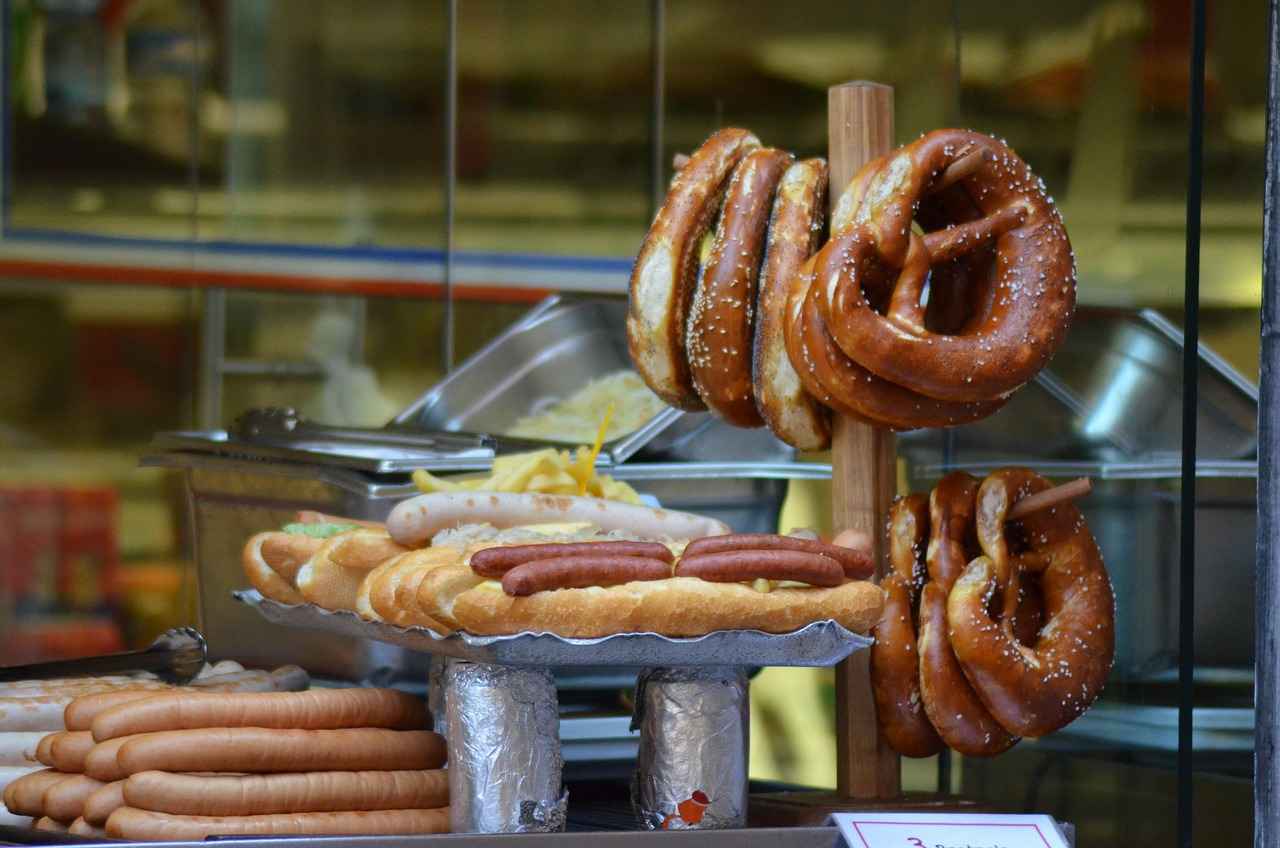
Can You Drink Water While Fasting?
Many individuals embarking on a fasting journey often ponder the question: Does drinking water break a fast? This inquiry is particularly relevant as various fasting methods exist, each with its own guidelines and implications for hydration. Understanding the relationship between water consumption and fasting is essential for anyone looking to optimize their health and well-being through this practice.
Fasting can be categorized into several types, including intermittent fasting, where eating is restricted to specific time windows, and prolonged fasting, which lasts for extended periods, often exceeding 24 hours. In most cases, water consumption is not only permitted but is also encouraged during fasting periods. This is because water plays a vital role in maintaining bodily functions, even when food intake is limited.
During intermittent fasting, individuals typically abstain from food for a set number of hours, often followed by a period of eating. In this context, drinking water is not only acceptable but beneficial. Staying hydrated can help manage hunger pangs and support metabolic processes. Moreover, research suggests that adequate water intake during fasting can enhance fat oxidation and improve overall energy levels.
On the other hand, prolonged fasting presents a different scenario. While abstaining from food for more than 24 hours, it becomes even more crucial to maintain hydration. Water helps to prevent dehydration, which can lead to dizziness, fatigue, and other health complications. In fact, many experts recommend drinking water regularly during such fasting periods to ensure that the body remains hydrated and functions optimally.
It is also important to differentiate between water and other beverages. While plain water is generally considered safe and beneficial during fasting, drinks like coffee or tea can have varying effects. For instance, black coffee is often permitted in moderation due to its low-calorie content, while sugary drinks or juices can disrupt the fasting process.
Maintaining electrolyte balance is another critical aspect of hydration while fasting. Electrolytes, such as sodium and potassium, are essential for numerous bodily functions, including nerve signaling and muscle contraction. When fasting, especially for extended periods, it can be beneficial to consume electrolyte-rich water or supplements to prevent imbalances.
Recognizing the signs of dehydration is vital for anyone fasting. Symptoms may include:
- Dry mouth
- Fatigue
- Dizziness
- Headaches
- Dark-colored urine
Addressing hydration needs promptly can help mitigate these symptoms and ensure a safer fasting experience.
To maximize the benefits of fasting, consider these best practices for staying hydrated:
- Drink water consistently throughout the fasting period.
- Consider adding a pinch of salt or electrolyte supplements to your water.
- Avoid excessive caffeine consumption, as it can lead to dehydration.
- Listen to your body; if you feel thirsty, drink water.
In summary, drinking water during fasting is generally acceptable and advisable. It supports various bodily functions and can enhance the overall fasting experience. By understanding the nuances of hydration in relation to different fasting methods, individuals can make informed choices that promote their health and well-being.
Intermittent Fasting and Water Intake
Intermittent fasting has gained immense popularity as a method for weight management and overall health improvement. One of the most common questions that arise in this context is whether drinking water during fasting periods is permissible. This article delves into the significance of water consumption while practicing intermittent fasting, highlighting how it can support health without disrupting the fasting process.
Intermittent fasting typically involves alternating cycles of eating and fasting. During the fasting phase, the body undergoes various metabolic changes, including increased fat oxidation and improved insulin sensitivity. However, these benefits can be undermined if hydration is neglected. Water plays a crucial role in maintaining bodily functions, particularly during fasting.
Water is essential for various physiological processes, including:
- Regulating body temperature: Adequate hydration helps maintain a stable body temperature, which is vital during fasting.
- Supporting digestion: Even though food intake is restricted, the digestive system still requires water to function efficiently.
- Enhancing metabolic processes: Proper hydration can aid in metabolic functions, ensuring the body operates optimally during fasting.
Many individuals are concerned that consuming water might break their fast. However, drinking plain water is generally considered safe and beneficial during fasting. Unlike caloric beverages, water does not stimulate insulin release or provide energy, allowing the body to continue utilizing fat stores for energy.
Incorporating water into your fasting routine offers several benefits:
- Suppressing hunger: Drinking water can help curb hunger pangs, making it easier to adhere to fasting periods.
- Preventing dehydration: Staying hydrated is crucial, as dehydration can lead to fatigue, headaches, and dizziness.
- Boosting energy levels: Proper hydration supports overall energy levels, which can sometimes dip during fasting.
While individual hydration needs may vary, a general guideline is to aim for at least 8-10 cups of water per day. During fasting, it’s essential to listen to your body and adjust your intake based on activity levels and environmental conditions. Additionally, incorporating electrolytes in moderation can help maintain balance without breaking your fast.
Aside from plain water, other options include:
- Herbal teas: These are typically calorie-free and can provide flavor without breaking your fast.
- Black coffee: While it contains caffeine, black coffee is also calorie-free and can be consumed during fasting periods.
In conclusion, intermittent fasting and hydration go hand in hand. Drinking water during fasting windows not only supports essential bodily functions but also enhances the overall fasting experience. By understanding the importance of hydration and incorporating it into your fasting routine, you can optimize your health and well-being.
Prolonged Fasting and Hydration
Prolonged fasting, defined as abstaining from food for more than 24 hours, presents unique challenges and considerations, particularly regarding hydration. As individuals engage in this practice, understanding the significance of water intake becomes essential for both health and safety. In this section, we will delve into the critical role of hydration during extended fasting periods and its implications for overall well-being.
When fasting for extended durations, the body undergoes various physiological changes. One of the most crucial aspects is the body’s reliance on water to maintain essential functions. During prolonged fasting, the absence of food means that the body is not receiving nutrients or electrolytes through meals, making it imperative to prioritize water consumption. Hydration plays a vital role in maintaining metabolic processes, regulating body temperature, and supporting cognitive function.
Moreover, the effects of dehydration can be detrimental, especially during prolonged fasting. Individuals may experience symptoms such as dizziness, fatigue, and headaches, which can significantly hinder the fasting experience. By ensuring adequate water intake, individuals can mitigate these risks and enhance their overall fasting journey. To further understand the relationship between hydration and prolonged fasting, consider the following key points:
- Water as a Vital Nutrient: Water is often overlooked as a nutrient, yet it is essential for nearly every bodily function. During fasting, it helps transport nutrients, remove waste, and maintain cellular health.
- Electrolyte Balance: While water is crucial, maintaining an appropriate balance of electrolytes—such as sodium, potassium, and magnesium—is equally important. These minerals support nerve function and muscle contractions, which can be compromised during extended fasting.
- Monitoring Hydration Levels: It’s essential to listen to your body. Signs of dehydration can include dry mouth, dark urine, and lethargy. Staying attuned to these signals can help individuals adjust their water intake accordingly.
- Hydration Strategies: To optimize hydration during prolonged fasting, consider drinking water regularly throughout the day. Some individuals may also incorporate electrolyte supplements to ensure they are meeting their body’s needs without breaking the fast.
Furthermore, the psychological aspect of fasting should not be overlooked. Many individuals report feeling more focused and energized when they are adequately hydrated. This mental clarity can enhance the fasting experience, making it easier to adhere to the fasting protocol.
In summary, the importance of hydration during prolonged fasting cannot be overstated. By prioritizing water intake and being mindful of electrolyte balance, individuals can navigate the challenges of extended fasting more effectively. Staying hydrated not only supports physical health but also enhances mental clarity and overall well-being, making the fasting experience more rewarding.
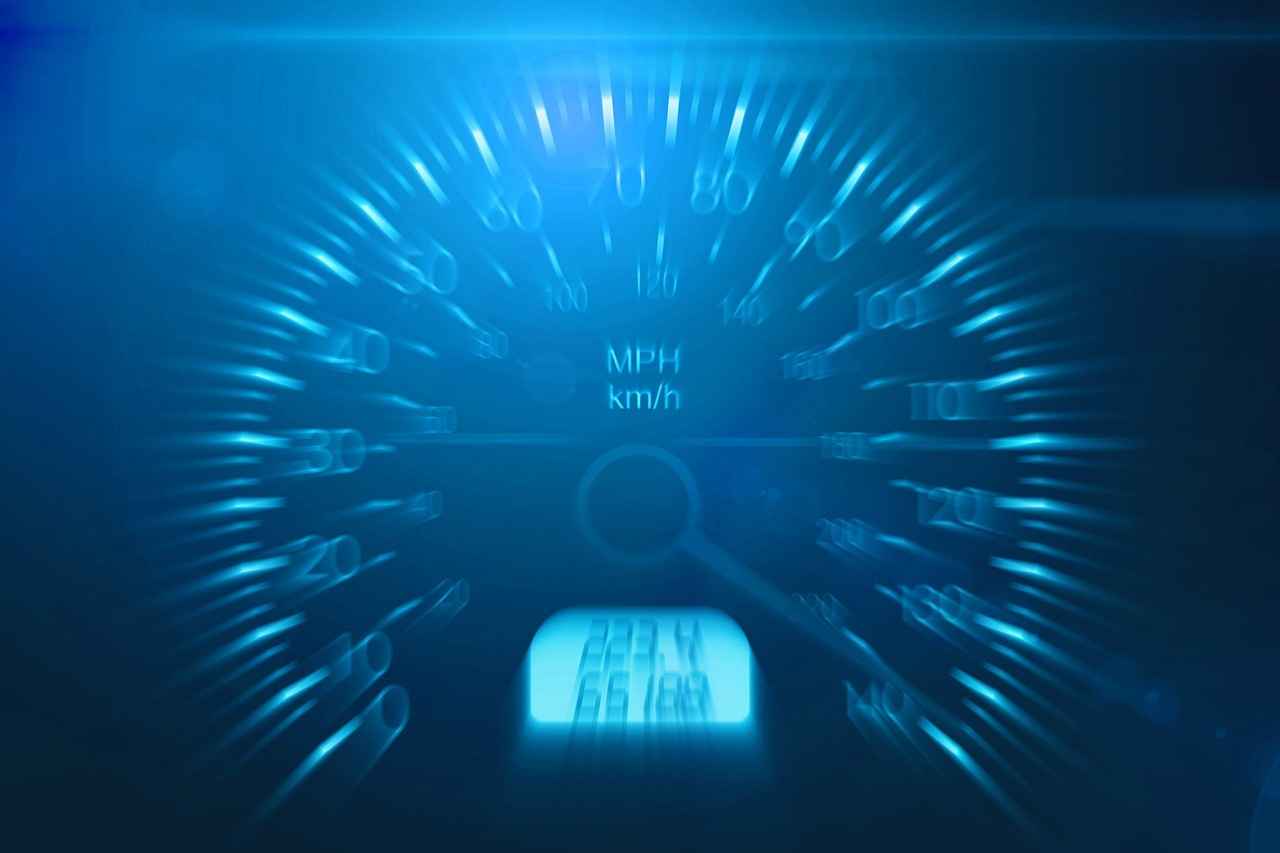
Hydration and Metabolism During Fasting
Hydration is not just a basic necessity; it is a crucial component that significantly influences our metabolism, particularly during fasting periods. When we fast, our body undergoes various metabolic changes, and maintaining adequate hydration can play a vital role in how efficiently these processes occur. This section delves into the intricate relationship between hydration and metabolism, shedding light on how water intake can affect metabolic rates and energy levels during fasting.
During fasting, the body shifts from using glucose as its primary energy source to utilizing stored fat. This metabolic transition is heavily influenced by hydration levels. Water is essential for the biochemical reactions that convert fat into energy. Insufficient hydration can slow down these reactions, potentially leading to decreased energy levels and increased feelings of fatigue.
Furthermore, hydration impacts the body’s ability to regulate temperature and maintain homeostasis. When fasting, the metabolic rate may increase slightly due to the energy required for digestion and other bodily functions. However, if the body is dehydrated, it may struggle to maintain this increased metabolic rate, which can hinder the overall benefits of fasting.
Research suggests that drinking water can enhance metabolic rates. A study found that drinking approximately 500 ml of water can increase metabolic rate by about 30% for roughly 30-40 minutes. This boost in metabolism can be particularly beneficial during fasting, as it helps to maintain energy levels and supports fat oxidation.
Moreover, hydration is essential for appetite regulation. Sometimes, feelings of hunger can be mistaken for thirst. Staying adequately hydrated can help distinguish between true hunger and thirst, potentially leading to better fasting experiences. By drinking water, individuals may find it easier to manage their hunger cues, making fasting more tolerable.
In addition to its direct effects on metabolism, water plays a role in maintaining electrolyte balance. During fasting, especially prolonged fasting, the body can lose electrolytes through sweat and urine. Proper hydration helps to replenish these essential minerals, ensuring that bodily functions remain optimal. This balance is crucial for muscle function, nerve signaling, and overall health.
It is important to note that not all hydration sources are equal. While water is the best choice for hydration during fasting, beverages like coffee and tea can also contribute to fluid intake. However, they may have diuretic effects, which could lead to increased fluid loss. Therefore, it is advisable to prioritize plain water and consume caffeinated beverages in moderation.
In conclusion, hydration is a fundamental aspect of metabolism during fasting. Adequate water intake supports metabolic processes, enhances energy levels, and helps regulate appetite. By understanding the importance of hydration, individuals can optimize their fasting experience and reap the full benefits of their fasting regimen.
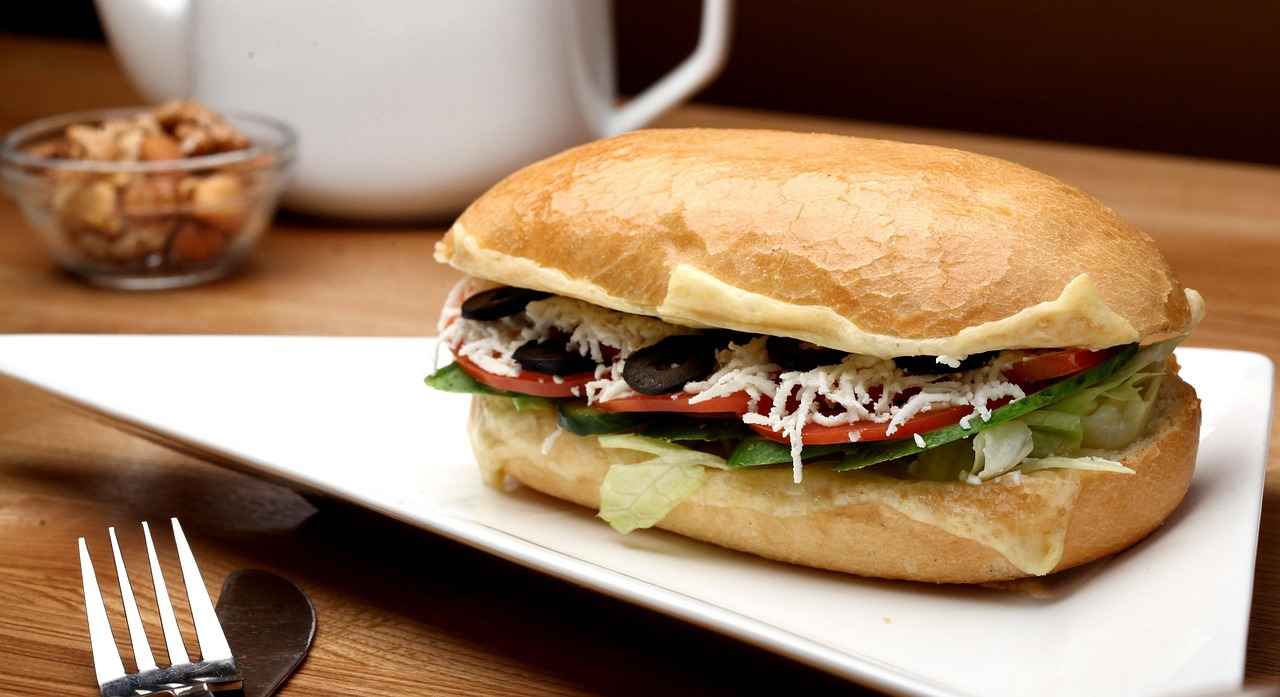
Common Myths About Water and Fasting
When it comes to fasting, hydration is a topic often surrounded by confusion and misconceptions. Many people believe that drinking water during a fast can break it, leading to various myths that need clarification. This article aims to debunk these myths and provide a clearer understanding of the role water plays in fasting.
One of the most prevalent myths is that consuming water during a fasting period nullifies the fast. In reality, water does not contain calories and is generally considered permissible during most fasting protocols. Whether you are practicing intermittent fasting or prolonged fasting, staying hydrated is crucial for maintaining overall health.
Another common misconception is that only plain water is acceptable during fasting. While it’s true that certain beverages, particularly those with added sugars or calories, can break a fast, unsweetened herbal teas and black coffee are often considered acceptable alternatives. These beverages can even enhance the fasting experience by providing additional benefits without breaking the fast.
Some individuals mistakenly believe that hydration is less important during fasting. This is far from the truth. Water is essential for various bodily functions, including temperature regulation and digestion. When fasting, it’s vital to drink enough water to prevent dehydration, which can lead to headaches, fatigue, and decreased cognitive function.
Many people overlook the importance of electrolytes while fasting. While water is essential, electrolytes such as sodium, potassium, and magnesium play a crucial role in maintaining fluid balance and overall health. During extended fasting, incorporating electrolyte-rich beverages can help prevent imbalances and support bodily functions.
Relying solely on thirst as an indicator of hydration status can be misleading. During fasting, individuals may not feel thirsty, yet their bodies still require water. It is important to proactively hydrate and recognize other signs of dehydration, such as dry mouth, fatigue, and dizziness.
- Drink Water Regularly: Aim to consume water consistently throughout the day, even during fasting periods.
- Include Electrolytes: Consider adding electrolyte supplements or consuming broth to maintain balance.
- Monitor Signs of Dehydration: Be aware of symptoms and adjust your water intake accordingly.
- Choose Hydrating Foods: When breaking a fast, opt for water-rich foods like fruits and vegetables.
In summary, understanding the common myths surrounding water consumption during fasting is essential for anyone looking to optimize their fasting experience. By staying informed about what is permissible and beneficial, you can ensure that hydration supports your fasting journey rather than hinders it.
Water vs. Other Beverages
When it comes to fasting, the choice of liquids can significantly impact your experience and results. While water is often regarded as the best choice for hydration during fasting, other beverages like coffee and tea also come into play. Understanding these differences can help you make informed decisions about what to consume during your fasting periods.
The Importance of Water During Fasting
Water is essential for maintaining hydration, especially when your body is in a fasted state. It supports vital functions such as:
- Regulating body temperature
- Aiding digestion
- Transporting nutrients
- Eliminating waste
Since fasting often involves a reduction in food intake, ensuring adequate water consumption becomes even more crucial to prevent dehydration.
How Coffee and Tea Fit In
Unlike water, coffee and tea contain caffeine and other compounds that may influence your fasting experience. While both beverages are low in calories and can be consumed without breaking a fast, they can affect individuals differently:
- Caffeine can enhance alertness and energy levels, making it a popular choice for many during fasting.
- However, excessive caffeine intake may lead to dehydration, increased heart rate, and digestive discomfort.
- Herbal teas, which are typically caffeine-free, can provide hydration without the stimulating effects of coffee.
Caloric Content and Fasting
Another essential factor to consider is the caloric content of the beverages. Water is calorie-free, making it the ideal choice for maintaining a fast. On the other hand, adding milk, sugar, or other sweeteners to coffee or tea can introduce calories that might disrupt the fasting process. Therefore, if you choose to enjoy these beverages, it’s best to consume them plain.
Potential Benefits of Coffee and Tea During Fasting
Despite the considerations, coffee and tea can offer some benefits during fasting:
- Antioxidants: Both beverages are rich in antioxidants, which can help combat oxidative stress.
- Appetite Suppression: Caffeine may help in reducing hunger pangs, making it easier to stick to your fasting schedule.
Conclusion: The Best Beverage Choices for Fasting
In summary, while water remains the cornerstone of hydration during fasting, coffee and tea can be beneficial when consumed mindfully. The key is to ensure that your choices align with your fasting goals and personal health needs. Always listen to your body and adjust your liquid intake accordingly to optimize your fasting experience.
Electrolyte Balance During Fasting
Maintaining electrolyte balance is essential during fasting, as it plays a pivotal role in overall health and bodily functions. When you fast, your body undergoes numerous physiological changes, and hydration becomes increasingly important. This section delves into how hydration, along with adequate electrolyte intake, can prevent dehydration and support your health during fasting periods.
Electrolytes, such as sodium, potassium, magnesium, and calcium, are critical for various bodily functions, including nerve transmission, muscle contraction, and maintaining acid-base balance. During fasting, the absence of food can lead to a dip in electrolyte levels, especially if you are not consuming sufficient fluids. This can result in symptoms like muscle cramps, fatigue, and dizziness.
To maintain a healthy electrolyte balance, it is vital to focus on hydration strategies that include both water and electrolyte sources. Here are some effective methods:
- Hydration with Electrolyte-Infused Water: Consider drinking water that is enhanced with electrolytes. This can help replenish essential minerals without breaking your fast.
- Bone Broth: If your fasting regimen allows for it, bone broth is an excellent source of electrolytes and can provide nourishment while keeping you hydrated.
- Electrolyte Supplements: For those engaging in prolonged fasting, supplements can be an effective way to maintain electrolyte levels. Look for options that are low in calories and free from sugar.
Moreover, understanding how hydration impacts your body during fasting is crucial. Water intake not only aids in digestion but also supports metabolic processes. During fasting, your body relies on stored energy, and hydration helps facilitate this process by ensuring that your cells function optimally. A well-hydrated body can also better manage hunger cues, making it easier to adhere to your fasting schedule.
It is also important to recognize the signs of dehydration while fasting. Common symptoms include:
- Dry mouth
- Fatigue or lethargy
- Dizziness or lightheadedness
- Headaches
If you experience any of these symptoms, it is crucial to address your hydration needs promptly. Ignoring these signs can lead to more severe complications, particularly when fasting for extended periods.
In conclusion, maintaining electrolyte balance is not just a matter of drinking water; it requires a comprehensive approach to hydration that includes electrolyte intake. By being proactive about your hydration strategy, you can enhance your fasting experience and promote better health outcomes. Remember, a well-hydrated body is better equipped to handle the challenges of fasting, allowing you to reap the full benefits of this practice.

Signs of Dehydration While Fasting
During fasting, maintaining proper hydration is essential for overall health and well-being. Recognizing the signs of dehydration is vital for anyone fasting, as it can significantly impact both physical and mental performance. This section outlines the symptoms to watch for and emphasizes the importance of addressing hydration needs promptly.
One of the earliest signs of dehydration is thirst. While this may seem obvious, it often goes unnoticed, especially during fasting when individuals might be focused on abstaining from food. Another common symptom is dry mouth, which can be a clear indicator that the body needs more fluids. Additionally, fatigue or a general feeling of tiredness can arise due to insufficient hydration, making it crucial to listen to your body.
More severe symptoms can include dizziness or lightheadedness, which may occur when standing up quickly. This happens because dehydration can lead to a drop in blood pressure. Headaches are another frequent complaint among those who are dehydrated, as the brain temporarily contracts from fluid loss, causing pain. Furthermore, dark yellow urine is a clear sign of dehydration; ideally, urine should be light yellow or clear.
In extreme cases, dehydration can lead to serious complications, including confusion or irritability. These symptoms can greatly affect one’s ability to focus and make decisions, which is particularly concerning for those engaging in fasting for mental clarity or spiritual purposes. Therefore, it is crucial to monitor these signs closely.
To prevent dehydration while fasting, it’s essential to establish a hydration plan. This includes drinking adequate amounts of water during non-fasting periods and considering electrolyte-rich beverages to replenish lost minerals. Electrolyte balance is vital, as it helps maintain fluid balance and supports nerve and muscle function.
In conclusion, recognizing and addressing the signs of dehydration is paramount for anyone fasting. By staying vigilant about hydration, individuals can enhance their fasting experience, ensuring that they remain healthy and alert throughout the process. Always remember, hydration is key to a successful fasting journey.
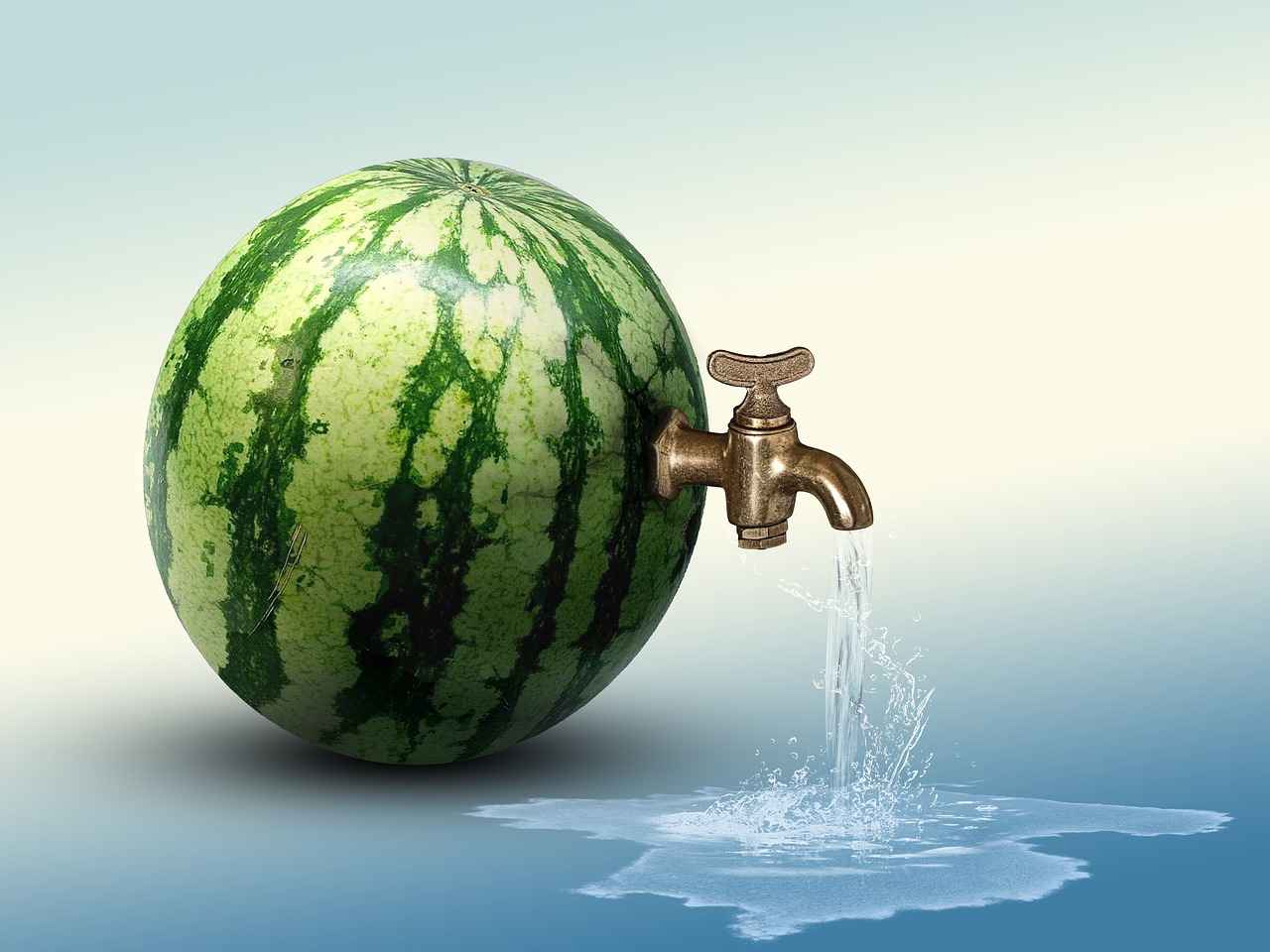
Best Practices for Staying Hydrated While Fasting
Staying hydrated during fasting periods is crucial for maximizing the benefits of your fasting regimen. Proper hydration not only supports bodily functions but also enhances your overall fasting experience. Below are some best practices to ensure you maintain adequate water intake without breaking your fast.
- Start Your Day with Water: Begin your fasting period by drinking a glass of water. This helps to kickstart your metabolism and prepares your body for the hours ahead.
- Set Reminders: Use your phone or a hydration app to set reminders throughout the day to drink water. This can help you stay on track and avoid dehydration.
- Track Your Intake: Keep a log of how much water you consume. Aim for at least 2-3 liters of water daily, depending on your activity level and individual needs.
- Infuse Your Water: If plain water feels monotonous, consider infusing it with fruits or herbs. Adding slices of lemon, cucumber, or mint can make hydration more enjoyable without adding calories.
- Drink Herbal Tea: During fasting, herbal teas can be a great alternative to water. They are usually calorie-free and can provide additional health benefits, such as antioxidants.
- Pay Attention to Electrolytes: While fasting, you may lose electrolytes through sweat and urine. Consider adding a pinch of salt to your water or consuming electrolyte supplements to maintain balance.
- Listen to Your Body: Be aware of your thirst cues. If you feel thirsty, it’s a clear indication that your body needs hydration. Don’t wait until you are dehydrated to drink water.
- Avoid Dehydrating Beverages: Limit the intake of caffeinated or alcoholic beverages during fasting, as they can lead to dehydration. Opt for water, herbal teas, or clear broths instead.
- Hydrate Before and After Fasting: Ensure you are well-hydrated before starting your fasting period and rehydrate adequately after breaking your fast. This helps to replenish fluids lost during fasting.
Conclusion: Implementing these best practices can significantly enhance your hydration levels while fasting. Remember, staying hydrated not only supports your health but also optimizes the benefits of your fasting journey. By making hydration a priority, you can enjoy a more effective and rewarding fasting experience.

Conclusion: Hydration and Fasting—A Balanced Approach
In the realm of fasting, the connection between hydration and overall wellness cannot be overstated. Many individuals embarking on a fasting journey often overlook the critical role that water plays in both the physiological and psychological aspects of fasting. Staying properly hydrated not only supports bodily functions but also enhances the fasting experience. This article delves deeper into why hydration is a vital component of fasting and how it can significantly influence your fasting outcomes.
Hydration: A Key to Fasting Success
Fasting, whether intermittent or prolonged, can lead to changes in your body’s hydration levels. During fasting, especially when food intake is restricted, the body may experience a drop in hydration. This is why it’s essential to make a conscious effort to drink enough water. Adequate hydration helps to maintain energy levels, supports metabolic processes, and can even help alleviate feelings of hunger.
The Science Behind Hydration and Fasting
Water serves as a medium for numerous biochemical reactions in the body. When fasting, these reactions continue to occur, and hydration is necessary to facilitate them. Studies have shown that dehydration can lead to fatigue, headaches, and impaired cognitive function, which can disrupt the fasting experience. Therefore, understanding the science behind hydration can empower individuals to make informed choices during their fasting periods.
Practical Hydration Strategies
- Drink Water Regularly: Aim to drink water consistently throughout your fasting window. This can help maintain hydration levels and prevent dehydration.
- Monitor Your Body: Pay attention to your body’s signals. Thirst is a clear indicator, but also be aware of symptoms like dry mouth or fatigue.
- Incorporate Electrolytes: If you are fasting for extended periods, consider adding electrolytes to your water to replenish lost minerals.
- Set Reminders: Use apps or alarms to remind yourself to drink water, especially if you tend to forget during busy days.
Addressing Common Misconceptions
There are numerous myths surrounding hydration during fasting. One prevalent misconception is that any liquid consumed will break a fast. However, most experts agree that plain water does not break a fast and is essential for maintaining hydration. Other beverages, such as herbal teas or black coffee, can also be included, but it’s crucial to understand their potential effects on fasting.
Recognizing Dehydration Symptoms
Being aware of the signs of dehydration is vital for anyone engaging in fasting. Common symptoms include:
- Dizziness
- Dry skin
- Increased thirst
- Dark-colored urine
If you experience these signs, it’s imperative to rehydrate promptly to avoid more serious health issues.
Conclusion: A Balanced Approach to Hydration and Fasting
In summary, the relationship between hydration and fasting is pivotal for anyone looking to enhance their fasting experience. By prioritizing hydration, individuals can not only support their bodily functions but also improve their overall fasting outcomes. Staying informed about hydration practices can lead to a more fulfilling and successful fasting journey. Remember, a well-hydrated body is better equipped to handle the challenges of fasting, making the experience more enjoyable and beneficial.
Frequently Asked Questions
- Does drinking water break a fast?
No, drinking water does not break a fast. In fact, staying hydrated is crucial during fasting periods to support your body’s functions and maintain energy levels.
- Can I drink other beverages while fasting?
While water is the best choice, some people opt for black coffee or herbal teas. However, sugary drinks or those with calories can break your fast, so it’s best to stick with water.
- How much water should I drink while fasting?
It’s generally recommended to drink at least 8-10 cups of water a day, but listen to your body. If you’re feeling thirsty, grab a glass!
- What are the signs of dehydration during fasting?
Signs of dehydration include dry mouth, fatigue, dizziness, and dark urine. If you notice these symptoms, it’s important to hydrate immediately.
- Is it safe to fast without water?
Prolonged fasting without water can be dangerous and lead to dehydration. Always ensure you’re drinking enough water, especially during extended fasting.
- Can I add electrolytes to my water while fasting?
Yes! Adding electrolytes can help maintain balance and hydration, especially during longer fasting periods. Just make sure they contain no calories.












